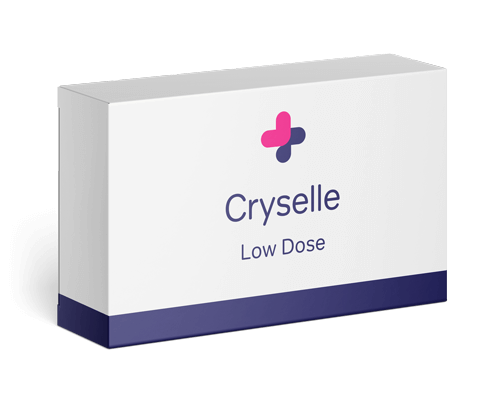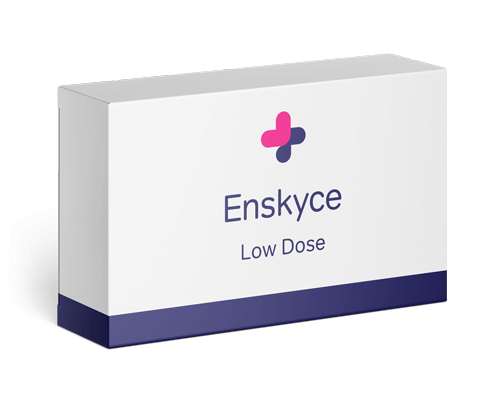Breakthrough bleeding refers to any unscheduled bleeding that occurs even though you are using active birth control pills (or patches and rings). If the bleeding is light, there’s no reason to be worried. Breakthrough bleeding is quite common, especially during the first six months using birth control, as your body is still adapting to the hormonal changes. In fact, it is the most common reported side effect with hormonal birth control.
The degree of the breakthrough bleeding can range from light discharge to bleeding which resembeles normal menstruation.
There is really nothing you can do but wait patiently for your body to acclimate to the treatment, and for the bleeding to stop in its own. Keep on taking the birth control as prescribed, and breakthrough bleeding will usually resolve in 2-3 cycles. If the bleeiding does persist longer, it should at least become less pronounced over time.
If breakthrough bleeding persists for more than 2-3 cycles, or becomes more intense, it’s recommended that you see your doctor to evaluate for other causes.
If bleeding is heavy — such as filling one pad or tampon per hour for consecutive hours - or if bleeding is accompanied by lightheadedness or shotness of breath, you should seek medical help right away.
You should bear in mind that some medications can interact with hormonal birth control and increase the risk of bleeding. Therefore, it’s important to tell your doctor about any new medications you are taking. Conversely, when a doctor prescribes new medications for you, you should ask whether they’ll interfere with your birth control.
For some women, breakthrough bleeding occurs each time they want to skip a period. If breakthrough bleeding persists for longer than five months, talk to your doctor about putting you on a different birth control pill. There are many different options, and sometimes it takes two or three tries to find the right pill.
When taking an extnded cyle pill, or when trying to skp your period, tt is a good idea to allow for a period every 2 to 3 months, either by stopping the pills, or by using inactive pills. Such a break, which can last 4-7 days, will reduce the chances of getting breakthrough bleeding when you are on active pills.
Missed or late pills can also cause breakthrough bleeding, which is why it’s important to adhere to the prescribed schedule. Taking ithe medication at the same time esch day will make missing a dose less likely. This can in turn prevent breahthrouhgh bleeding and ensure optimal protection against pregnancy. You can remind yourself to take the pill by setting an alarm on your phone, or combining pill taking with a daily ritual, such as tooth brushing.
Yes, taking progestin-only pills instead of combined pills makes it slightly more likely that you get irregular spotting and bleeding during the first three to six months. However, you’ll notice a gradual improvement, and after six months, the breakthrough bleeding will have disappeared entirely. If you still experience bleeding beyond the sixth month of using progestin-only pills, there may be some other cause. It is recommended that you consult your gynecologist or general doctor.
Find out more about the treatments mentioned in this article below:
Prices from:
Combination patch
Combined biphasic pill
Combined triphasic pill
Combined triphasic pill
Combined triphasic pill
Extended cycle
Low dose
Combined pill with iron supplement
Low dose pill with iron supplement
Low dose
Low dose
Low dose
Low dose
Low dose
Low dose
Low dose
Low dose
Low dose
Low dose
Mini pill
Mini pill
Vaginal ring
Combined pill

Answer some simple questions about your health with our free 2 minute consultation

A U.S. licensed physician will review your answers and issue a prescription if suitable

Our pharmacy will pack your FDA approved medicine in anonymous packaging, and ship it for free



Prescription fees are for our U.S. qualified doctors to evaluate your request and issue a prescription if that is the appropriate outcome for your case. We want to make healthcare pricing transparent and affordable that's why we set the doctor's fee at a flat rate of $20 for all services which is lower than most copays. The $20 medical fee does not include the cost of the medicine. We issue a 100% refund if we cannot help you including the doctor’s fee.
Don’t have an account? Register
Already have an account? Log in

Message Sent We will get back to you as soon as possible

To get fast delivery and the best prices,
choose your location below:

Delivery to Germany only

Delivery to the US only

Delivery to UK only



You’ve successfully logged in.


If you’re not sure what to choose, our qualified GPs can help.
A doctor will review your consultation and message you with a suggestion within 1-2 working days.
Thanks, a doctor will be in touch soon
Look out for the doctor’s response in your email inbox or patient account. View messages
Please check your email for password reset instructions. If you’re still having problems contact us .
Your account has been permanently suspended. Our providers have determined that you visit an in-person doctor to receive treatment. We sincerely apologize for the inconvenience.



